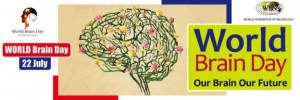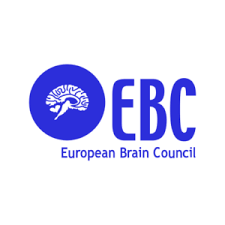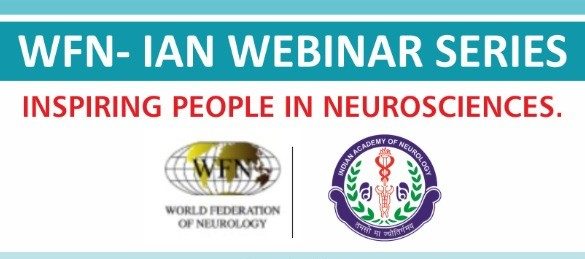“Our brain – our future”: Awareness-raising for the importance of brain health – Emphasis on prevention of underestimated burden of disease
On 22 July, the World Federation of Neurology (WFN) launched the first “World Brain Day,” an event dedicated to bringing more attention to the importance of brain health and the prevention of brain diseases, a largely underestimated health problem. Brain disorders, comprising mental, neurological and substance-use conditions, constitute 13 percent of the global burden of disease, surpassing both cardiovascular disease and cancer. Many of them are preventable and treatable, but diagnostic and therapeutic resources are unequally distributed globally.
“There is no health without brain health. Our brain is our most amazing and complex organ, and its functioning is most closely linked to the health of the whole human being,” according to Dr Raad Shakir, President of the World Federation of Neurology (WFN). “However, there is a lack of alertness in the public and among decision makers for the essential role of the brain and its health. This is also true for the individual and collective burden arising from brain diseases and in particular from neurological diseases. It is becoming increasingly clear that these disorders, such as stroke and dementia, are projected to rise at a rate that could overwhelm our health care systems. Hence a new emphasis has to be developed on prevention. Neurologists are the guardians of the brain and need to take the leading role in advancing new approaches in stemming the tide of neurological diseases.” Dr Shakir addressed this appeal to the public at the launch of WFN’s first “World Brain Day” on 22 July. The date for the new awareness day was not chosen at random: The WFN was founded on 22 July 1957 in Brussels.
“The complexities of the brain and of neurological diseases often become a barrier for public awareness. Our most important goal with this novel campaign is to present brain health in all its aspects and social dimensions and sensitize the public to its significance. In doing so, we want to support those affected by brain disease and in particular neurological diseases and inform the broad public about the importance of prevention,” says Dr Mohammad Wasay, Chair of the WFN’s Public Awareness and Advocacy Committee. “One in three of us will get dementia or stroke during our lifetime. Diseases affecting the brain are the single most important cause of disability in the world. It’s time to act. This is why we are taking this initiative to promote better brain health globally.”
High proportion of the world population not getting adequate care
“The burden of illness is unevenly distributed, with some neurological disorders more common in different parts of the world, or affecting different sections of the population”, Prof Wolfgang Grisold, Secretary General of the WFN, points out. “Although great progress has been made in diagnosis and therapy of brain diseases, appalling disparities in the availability of treatment persist, with many people all over the world having either no access or inadequate access to neurological care.”
As the WHO has shown, less than 9 percent of the world’s population has access to more than one neurological hospital bed per 10,000 inhabitants. The deficiencies are particularly striking in Africa and Southeast Asia. While in prosperous countries there is an average of three neurologists for every 100,000 people, the figure is only 0.03 per 10,000 in low-income countries. For many of the neurological disorders, inexpensive but effective treatments are available, Dr Wasay argues: “It is especially tragic when patients do not even have access to the most basic medication. Take the example of epilepsy: Up to 70 percent of people with epilepsy could become seizure-free with antiepileptic drug treatments, but the proportion of patients who remain untreated at any given time is greater than 80 percent in most low income countries.”
Brain health needs to be prioritized on the political agenda
“Introducing World Brain Day is also meant as a wake-up call to political decision-makers. Despite the huge burden they cause, neurological conditions are largely absent from the national and international health agendas”, says WFN President Shakir. “Not only do neurological diseases cause individual suffering, they also have much greater social and economic relevance than people often assumed.” Brain disorders are costly: For Europe alone, the latest figures published by the European Brain Council and the CDBE 2010 Study Group put the annual costs of brain diseases for EU economies at 798 billion euro, of which 60% was attributable to direct costs and 40% to lost productivity. Neurological disease alone account for 336 billion euro.
WFN Secretary General Prof Grisold: “The burden of neurological disorders continues to be underestimated, while in fact they should be treated as one of the highest-level healthcare priorities. The message we are sending out with the first World Brain Day in this respect is clear: Political and funding priorities need to shift, governments and international organisations need to prioritize brain health.”
The full text of the Press Release can be found at www.wfneurology.org/world-brain-day
Below some of the media reports on World Brain Day:
http://business-cluster.at/pressetext/22-juli-ist-1-welttag-des-gehirns-20140718
http://kurier.at/lebensart/gesundheit/von-porno-sucht-bis-gaehnen-15-fakten-ueber-das-gehirn/75.768.909/slideshow
http://www.aerztezeitung.de/medizin/krankheiten/neuro-psychiatrische_krankheiten/article/865495/neurologie-weltfoederation-erster-welttag-des-gehirns-22-juli.html
http://relevant.at/wirtschaft/pr/1531023/22-juli-1-welttag-des-gehirns.story
http://business-cluster.at/pressetext/22-juli-ist-1-welttag-des-gehirns-20140718
http://www.pr-inside.com/de/juli-ist-1-welttag-des-r4095355.htm
http://www.european-hospital.com/de/article/12033.html
http://www.diariocritico.com/ocio/ciencia/actividad-empresarial/dia-mundial-del-cerebro/459617
http://www.cardioaspirina.cl/es/novedades/novedades/25-mil-personas-al-ano-sufren-ataque-cerebral-en-chile.php
http://www.tusmedios.es/salud/60074-la-wfn-celebra-el-22-de-julio-el-primer-dia-mundial-del-cerebro.html
http://www.agenciaeluniversal.com.mx/informativas/comunicado.asp?id=2118
http://www.portalpolitico.tv/content/site/module/news/op/displaystory/story_id/109724/format/html/
http://www.elpatiopolitico.com/la-wfn-celebra-el-22-de-julio-el-primer-dia-mundial-del-cerebro/
http://www.estrelladigital.es/articulo/espanha/12-muertes-son-enfermedades-cerebrales/20140721192323204593.html
http://www.denoticias.es/noticias/negocios/74798-la-wfn-celebra-22-julio-primer-dia-mundial-cerebro.html
http://www.index.hr/vijesti/clanak/obiljezava-se-svjetski-dan-mozga-mozdani-udar-glavni-uzrok-invaliditeta-i-demencije/761189.aspx
http://www.drukciji.ba/drukcijaslova/svjetski-dan-mozga-22-srpnja-8111
http://www.apocalypsejohn.com/2014/07/mathete-poio-kai-poso-einai-to-kyriarxo-imisfairio-tou-egkefalou-sas-online-test.html
http://grizosgatos.blogspot.co.at/2014/07/online-test.html
http://www.matiastanea.gr/gr/
http://www.glas-slavonije.hr/241849/1/Mozdani-udar-drugi-je-uzrok-smrtnosti-u-Hrvatskoj
http://spoki.tvnet.lv/vesture/10-musdienu-miti-un-meli/572893
http://www.dnevnik.mk/?ItemID=E71C8F4DE18F0D469F8882D0F24006F8
http://www.almaty.tv/newsline/news/almatintsy-otmetyat-vsemirnyy-den-mozga.html
http://pharmnews.kz/news/vsemirnyj_den_mozga_predlagajut_otmechat_nevrologi_22_ijulja/2014-07-17-6648
http://www.ur.se/Produkter/182995-UR-Samtiden-Hjarnans-dag-2014-Fran-placebo-till-psykos
http://www.harsitvadisi.com/guncel/1421-Dunya-Beyin-gunu.html
https://www.haberturk.com/saglik/haber/972487-bugun-dunya-beyin-gunu
http://www.milliyet.com.tr/saglikli-beyin-saglikli-gelecek-demektir-konya-yerelhaber-305154/
http://zedhaber.com/haberdetay.asp?hid=5545
http://kahramanmaras.ism.saglik.gov.tr/dunya_beyin_gunu_haberi_453.html
http://www.paradisi.de/Health_und_Ernaehrung/Anatomie/Gehirn/News/109241.php
http://www.dawn.com/news/1120793/first-ever-world-brain-day-being-observed-today
http://tribune.com.pk/story/738933/world-brain-day-health-experts-link-stress-with-mental-illnesses-in-country/
http://tribune.com.pk/story/739087/world-brain-day-reading-writing-exercise-can-prevent-neurological-diseases-say-experts/
http://www.nation.com.pk/islamabad/22-Jul-2014/brain-day-today
http://pr.euractiv.com/pr/wfn-launches-first-world-brain-day-22-july-113831
http://www.brecorder.com/pakistan/general-news/185105-world-brain-day-is-being-observed-today.html
http://www.southasianmedia.net/stories/pakistan/english-language-media/world-brain-day-health-experts-link-stress-with-mental-illnesses-in-country-story
http://pktimes.4com.co/2014/07/21/world-brain-day-reading-writing-exercise-can-prevent-neurological-diseases-say-experts/
http://www.pharmacydaily.com.au/news/world-brain-day/34474
http://timesofindia.indiatimes.com/City/Nagpur/Use-it-or-lose-it-say-neurosurgeons/articleshow/38823002.cms
http://www.thenews.com.pk/Todays-News-6-263137-Brain-disorders-constitute-13-percent-o
http://www.sundaytimes.lk/140720/sunday-times-2/this-is-about-your-brain-use-it-or-lose-it-107662.html
http://www.thenews.com.pk/Todays-News-4-263094-Only-one-specialist-for-every-11,765-Pakistanis-with-disorders
http://www.tendencias21.net/La-WFN-celebra-el-22-de-julio-el-primer-Dia-Mundial-del-Cerebro_a35637.html










